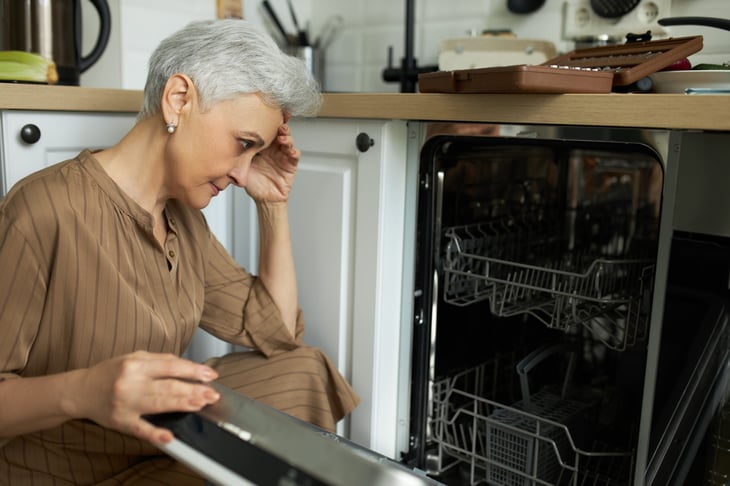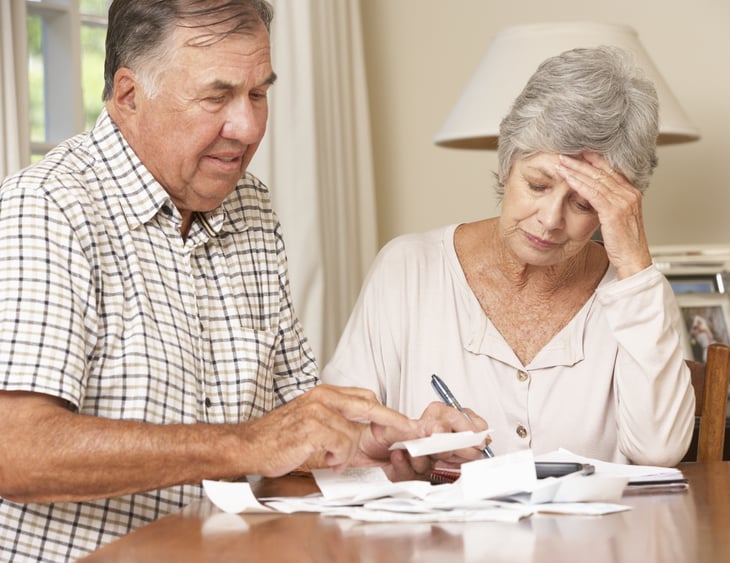
Throughout your working years, your emergency fund probably saved your bacon more than once. Car repairs, temporary unemployment, insurance deductibles and copays — having a pool of liquid cash certainly helps us paper over the rough spots in life.
Question: Do you think those rough spots magically disappear during retirement?
Maybe your golden years will be charmed, with everything happening as it should. No unexpected illnesses, property tax rate hikes or major plumbing fails, and your Social Security check and retirement savings cover every expense.
Don’t count on it. Having an emergency fund is just as important for retirees as it is for working folks. Maybe more so, since you’ll be living on a fixed income.
The following are a few of the reasons why you should always have cash reserves available during retirement.
Higher-than-expected medical costs

You’ll have Medicare health insurance in retirement, right? So, what could go wrong?
Plenty. Sure, some health care services are free for Medicare recipients. However, out-of-pocket costs like premiums and deductibles still have to be paid.
Oh, and Medicare doesn’t cover everything. For example, if you need a hearing aid or major dental work, you might be responsible for the entire cost, depending on your Medicare plan.
In fact, the average couple retiring this year will spend about $300,000 on health care and medical expenses during their retirement.
Having some ready cash to pay those unanticipated costs sure beats dipping into your retirement savings.
Home repair or modification

While original Medicare will pay for durable medical equipment such as home oxygen equipment and walkers, it does not cover the cost of home modifications such as wheelchair ramps or widened doorways. (However, some Medicare Advantage plans will cover bathroom remodels or other modifications, according to the website HelpAdvisor.)
According to HomeAdvisor.com, the cost to install a wheelchair ramp averages $100 to $250 per linear foot, and the cost to modify a home for disability could run as much as $19,000 depending on how many areas need renovating.
No one wants to think about stuff like this. But if you plan to age in place, better plan to build an emergency fund.
The revolt of the appliances

One couple I know had their washer, dryer, stove and water heater go out in the same year. Here’s hoping you’re never that unlucky.
But replacing even one appliance can cost big bucks due to pandemic-related production and supply-chain issues. According to Consumer Reports, appliance sticker shock will likely last until the end of 2021.
Ideally, you would have planned for appliance death by setting money aside each year for replacements. Realistically? Some of us think that Kenmore will chug on forever.
Spoiler alert: It won’t. Having cash set aside to help pay for a new washer or water heater means you might not have to finance it or take more than usual out of your retirement fund to cover the extra cost.
P.S. Be kind to your machinery, and it should last a lot longer. “8 Ways You Are Wrecking Your Major Appliances” explains what not to do.
You need to help family

Perhaps one of your children wound up divorced or widowed and needs financial assistance for a time. Or maybe you’re partially or fully supporting kids and grandkids in your own home. According to AARP, millions of children live in homes headed by grandparents or other relatives.
Sometimes that help is in the form of a loan, which you assume will come back to you as planned. Other times, you’re happy just to cover a granddaughter’s sports fees or contribute a couple of hundred dollars a month toward summer child care to ease the burden on your daughter and son-in-law.
This is all very kind — and a lot easier when you have a healthy emergency fund. The emergency fund lets you help others without putting your own finances in jeopardy.
The stock market goes sideways

The market goes up, the market goes down — and with it goes your retirement fund. Usually, those hills and valleys are temporary. Having a healthy emergency fund means a little cushion that will let you ride out the storm.
Suppose there’s a big market drop, the kind that scares you. You could continue withdrawing from your retirement accounts at the same rate as always. Or you could try this three-step alternative:
- Trim your current budget and vow to live on less for the next six months or longer.
- Postpone big-ticket items such as replacing furniture or trading in your (paid-for) car.
- Leave your retirement money right where it is.
Remember: The Secure Act of 2019 pushed back the age at which you must start taking required minimum distributions (RMDs) — which are mandatory minimum withdrawals that apply to most types of retirement accounts. You can now wait until you’re 72 years old to take your first RMD.
If a market crash happened in your late 60s, you’d have three or four years to let that money stay put and recover. But only if you can live on your Social Security and any other money that’s coming in — with occasional help from your emergency fund.
To protect your retirement fund

It can be easy to overdo those cash withdrawals, especially right at the beginning of retirement when you want to do All The Things.
But your retirement fund isn’t meant to be raided every time you see a shiny new toy. It’s your long-term security. And more to the point, raiding it will mean less money in the retirement fund earning interest for the future.
Use your emergency fund prudently but do use it if the situation is right. For example, suppose you’ll be traveling next year with extended family and would love to treat the grandkids to something special. Research the best deals you can find — for example, maybe that glacier cruise is cheaper on Tuesdays and Wednesdays — and see if the added cost fits into your current travel budget.
If so, good for you! If not, consider siphoning a few bucks from the emergency fund. As they say, you can’t get this time with the grandkids back.
And speaking of getting things back: When you get home, start planning ways to rebuild that emergency fund.
Tips for emergency fund management

An emergency fund should be both liquid and safe. A savings or checking account won’t earn you a ton of interest, but you’ll be able to lay your hands on it quickly. A money market account may pay better interest rates.
So might a certificate of deposit (CD). Don’t put your entire emergency fund into CDs, though, since you’d be penalized if you had to withdraw it early. Instead, you could “ladder” the certificates: Buy multiple CDs with different term lengths, so that you’ll have access to funds regularly.
To keep your money safe, go with a bank that is insured by the Federal Deposit Insurance Corp. (FDIC) or a credit union that is covered by the National Credit Union Share Insurance Fund.
One place you should not keep your emergency fund? At home. Here’s why that’s a terrible idea.





Add a Comment
Our Policy: We welcome relevant and respectful comments in order to foster healthy and informative discussions. All other comments may be removed. Comments with links are automatically held for moderation.